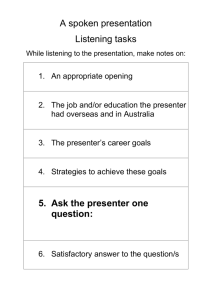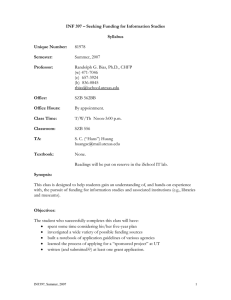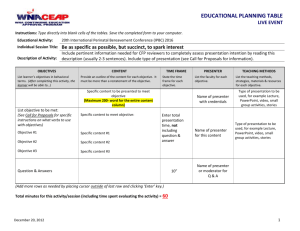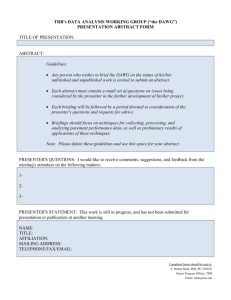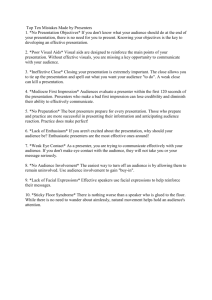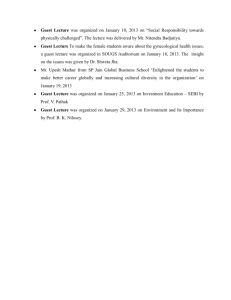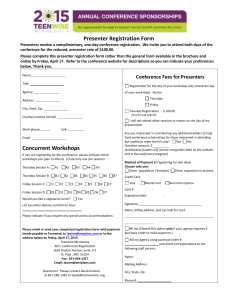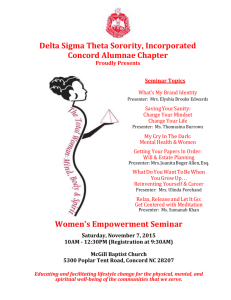Guidelines for Using Guest Speakers at school
advertisement
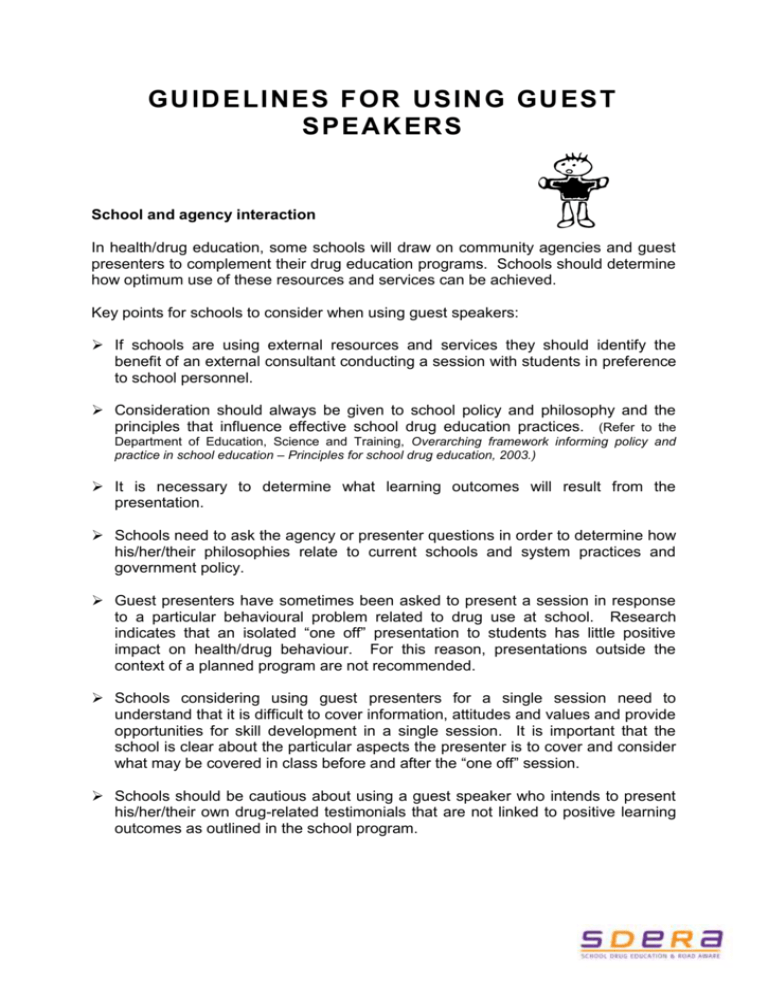
GU ID EL INES FOR USING G UEST SPEAKERS School and agency interaction In health/drug education, some schools will draw on community agencies and guest presenters to complement their drug education programs. Schools should determine how optimum use of these resources and services can be achieved. Key points for schools to consider when using guest speakers: If schools are using external resources and services they should identify the benefit of an external consultant conducting a session with students in preference to school personnel. Consideration should always be given to school policy and philosophy and the principles that influence effective school drug education practices. (Refer to the Department of Education, Science and Training, Overarching framework informing policy and practice in school education – Principles for school drug education, 2003.) It is necessary to determine what learning outcomes will result from the presentation. Schools need to ask the agency or presenter questions in order to determine how his/her/their philosophies relate to current schools and system practices and government policy. Guest presenters have sometimes been asked to present a session in response to a particular behavioural problem related to drug use at school. Research indicates that an isolated “one off” presentation to students has little positive impact on health/drug behaviour. For this reason, presentations outside the context of a planned program are not recommended. Schools considering using guest presenters for a single session need to understand that it is difficult to cover information, attitudes and values and provide opportunities for skill development in a single session. It is important that the school is clear about the particular aspects the presenter is to cover and consider what may be covered in class before and after the “one off” session. Schools should be cautious about using a guest speaker who intends to present his/her/their own drug-related testimonials that are not linked to positive learning outcomes as outlined in the school program. GU EST SPEAK ER CHECKL IST Have the following questions been considered? Does the guest speaker fit within the Western Australian Drug Strategy Policy Framework? Is a cost involved? Do all students have access to the presentation or is it user-pays? What is the purpose of the presentation? What will have occurred in the program prior to the session? Have the learning outcomes of the proposed session been clearly outlined? Because the teacher is responsible/accountable for the teaching/learning of the students, can the use of a presenter be justified? Will the presenter enhance rather than replace the role of the class teacher? What is the presenter’s prior experience with presenting sessions to school-aged children? Will the presenter be briefed on the program into which this presentation fits and the class? Does the school have a health/drug education policy? A copy should be made available to the agency before the session. How will the parents be informed of the presentation? Is there an information session available for parents? Will the presentation be part of an ongoing comprehensive program? Are the materials and information appropriate to the development level of the student? Do the resources need to be previewed by the relevant committee in the school community before being used with students? Do the resources reflect good practice? Do the resources reflect the policy of the school and its philosophy? What follow up will be done with the students and by whom? What school staff will be present during the session? (Adapted from NIDE, Commonwealth Department of Human Services & Health, (1996) Drug Education: Do it together school and agency interaction, Canberra
